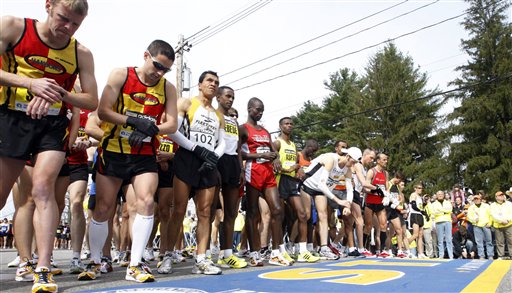
Jovial fans line the streets of the greater Boston area on the third Monday in April. They carry signs, take pictures, and shout encouraging words; however, this year, the streets of Boston stood silent on the third Monday in April of 2020, as the 124th Boston Marathon was cancelled.
Due to the ongoing COVID-19 pandemic, the Boston Athletic Association made the decision to cancel the in-person Boston Marathon, originally scheduled for April 20, and hold a virtual marathon from Sept. 5-14. The virtual format brought forth a number of drastic changes to the event. Notably, runners were given the option to run the race from any remote location in the world.
Felix Kandle, the male winner of the race, ran the marathon in Kenya and finished with a time of 2 hours and 19 minutes. The female winner was Beth Marzigliano who ran the marathon in 2 hours and 45 minutes from her hometown of Ocean, NJ.
Girls Run NYC Founder and Adidas Performance Coach, Jessie Zapo, ran her fifth Boston Marathon in the comfort of her Brooklyn Neighborhood.
“A friend and I were both signed up to run and we decided we wanted to make it an event where our friends and other athletes we train with could participate, so we decided to do the whole event in Prospect Park,” Zapo said. “It was really fun because all of these different people came out and we were never alone. People were running and biking with us the whole time.”
Runners were encouraged to download a Boston Marathon application where they could track their marathon times and submit them to the Boston Athletic Association.
“The BAA made an app that you download if you are a participant and then you put in your bib number and it gives you a window of time to do it,” Zapo explained. “The app itself has a GPS feature, but what a lot of people did was use a GPS watch and then once they finished they synced the app to the watch to upload the results.”
The Boston Marathon application also helped runners simulate the experience of race day for the in-person Boston marathon.
“Within the app, they gave you a little toolkit and you could print out your bib, a finish line and you could print out the signs that were the mile markers,” said Zapo. “I thought it was a smart idea because it made me feel like I was recreating the experience.”
Despite the Boston Athletic Association’s efforts to recreate the marathon in a remote setting, not everyone was happy with the marathon’s virtual format. Qualifying runners have been disappointed with the organization’s inability to guarantee race entry for the 2021 Boston Marathon.
Katie Rey, who has run seven marathons, worked tirelessly to qualify for the 2020 Boston Marathon.
“While pregnant, I saw fellow runners who qualified or ran Boston, and I knew I could get there too,” said Rey. “It inspired me to train and qualify. I wanted to see what the magic was all about.”
Unfortunately, the virtual marathon experience fell short for Rey.
“This felt like a really long long run,” said Rey. “There were no spectators, aid stations, or mile markers. It was just me running my own route, with my own motivators pushing me forward.”
Rey has hopes that the Boston Athletic Association will grant her qualifying entry into the 2021 race after all of her hard work.
“They haven’t guaranteed anyone for the next in-person Boston, so I very much hope they allow those of us in the 2020 cohort to get our chance on the real course.”







